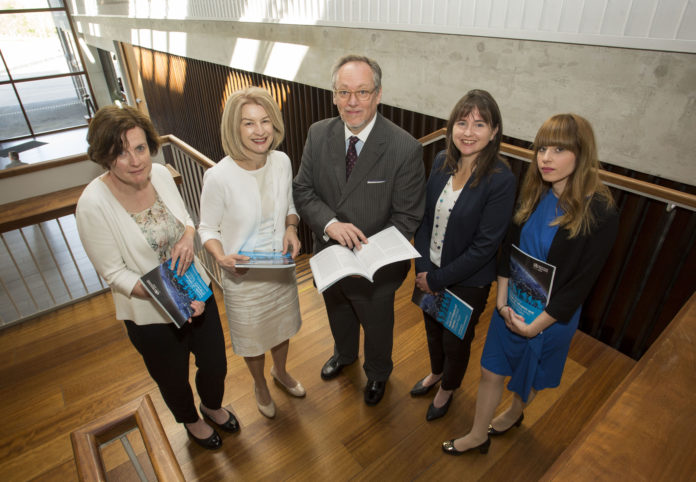
A World Health Organisation seminar held at the University of Limerick has sought to break down myths and promote facts around the health of refugees and migrants.
The WHO seminar on Refugee and Migrant health took place this Monday at the Graduate Entry Medical School (GEMS) in UL.
A WHO report on the Health of Refugees and Migrants in the WHO European Region, the first WHO report of its kind that sets out key new evidence to inform health policy and practice for migrants and refugees across Europe, was launched at the seminar.
One of the goals of the seminar was to examine evidence about refugee and migrant health and to promote ‘Fact-Checking and Myth Breaking’.
“One of the main myths that has been busted by the WHO report is around the fears in countries that migrants will bring infectious diseases to host populations, but the evidence does not support that,” explained Professor Anne MacFarlane, Chair of Primary Healthcare Research at UL GEMS, where the Public and Patient Involvement Research Unit has been designated a WHO Collaborating Centre for Migrants’ Involvement in Health Research.
“The evidence would show that, in fact, the displacement process makes migrants themselves vulnerable to infectious diseases because of living in poor conditions in host countries and they are certainly vulnerable to developing chronic disease or having their care for chronic disease disrupted during the migration process.
“We have seen evidence that the experience of moving from their home to a new country can impact negatively on their health and we do need to pay attention to their health needs,” she added.
The seminar also sought to stimulate advocacy to address health needs of refugees and migrants in the Irish healthcare system and to reflect on the European findings in relation to the specifics of the Irish context in order to develop priorities for policy, practice and research.
Prof MacFarlane’s particular area of expertise is around the language barriers that migrants will face in their host countries.
“At the moment people are relying on family members or friends or just broken English. Language differences are cited as a barrier to healthcare across countries, healthcare systems and over time. This is a persistent problem but it can be addressed.
“We need to advocate for migrants’ basic right to have access to healthcare – the right to a communication flow in their healthcare consultations. We need to disrupt the status quo and implement trained and accredited interpreters in our healthcare system.
“This status quo compromises healthcare in all consultations, creates clinical risks and will certainly undermine management of infectious disease and non-communicable diseases which refugees and migrants are at risk of,” she added.
The seminar in Limerick is part of a series that is taking place in cities such as Athens, Rome, Moscow, Ankara and London. The UL event was attended by Dr Santino Severoni, Acting Director, Division of Health Systems and Public Health and Coordinator, Migration and Health Programme, Division of Policy and Governance for Health and Well-being WHO Regional Office for Europe.
It brought together key stakeholders from government, health policy personnel, academics and researchers and civic society organizations to discuss the evidence in the Irish context and includes a presentation about UL research on migrant health in Ireland.
Discussions at the seminar will be used to inform the implementation of the second HSE National Intercultural Strategy, launched earlier this year.
WHO report.


